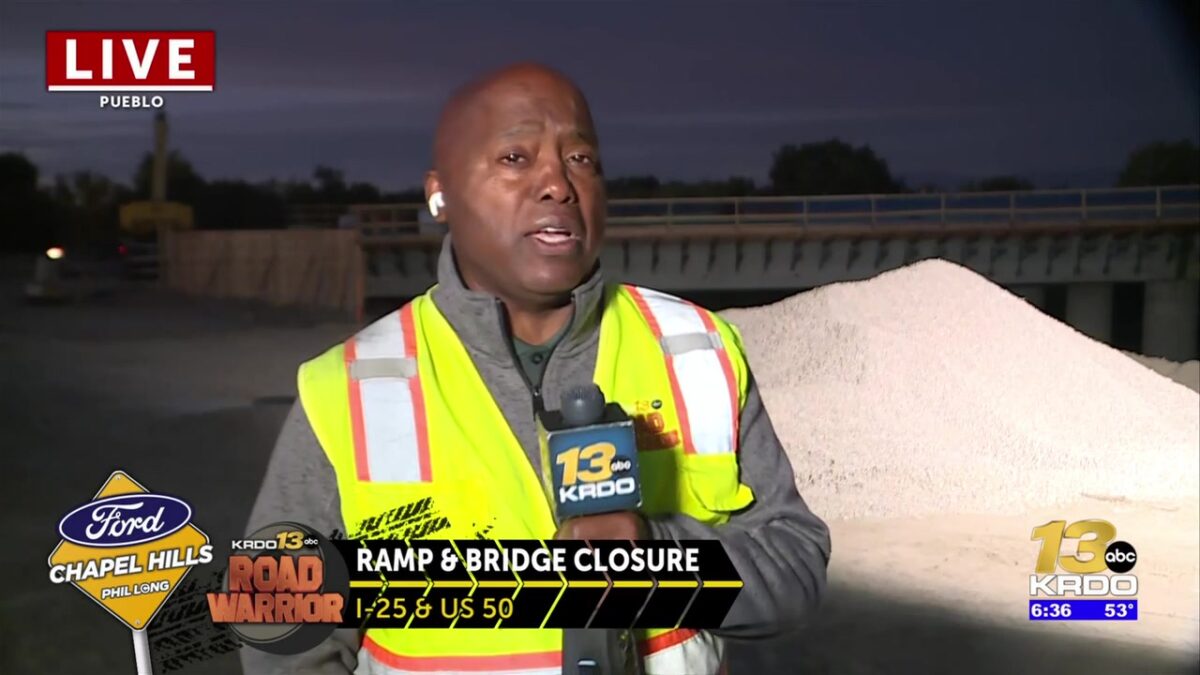Permanent closure of Pueblo I-25/US 50 east interchange SB ramps begins Friday night

Scott Harrison
PUEBLO, Colo. (KRDO) — For the first time since they were built in 1958, the cloverleaf ramps at the junction of I-25 and US 50 East will no longer be accessible by traffic as of 7 p.m. Friday.

The Colorado Department of Transportation (CDOT) is permanently closing the southbound I-25 ramp toward eastbound US 50, and the westbound US 50 ramp toward southbound I-25.
CDOT’s closure is the next phase of the ongoing $114 million project to replace five aging bridges over I-25, Fountain Creek, and the Union Pacific Railroad tracks.

Shortly after crews close and dismantle the ramps, crews will start demolishing the US 50 overpass at I-25, which has been damaged in recent years from semi-truck collisions and is rated in poor condition.
A primary factor in those collisions is that the overpass over southbound I-25 is a foot lower than on the northbound side.

The bridge project began in December and is scheduled for completion in the spring of 2027.
“We’re anticipating that before the end of October, we’ll have the ramps demolished and the bridge removed,” Scott Dalton, the project director, explained. “There will be more to come on the demo of the bridges. That plan isn’t quite in place yet, but that will be coming in the next few weeks.”

CDOT advises drivers to use Highway 47 — east of the I-25 exit to Pueblo West — as the detour around the closure.
While drivers may find shorter routes, CDOT said that its official detour is the only one that will accommodate commercial truck traffic and heavier overall traffic volumes.

A benefit of the project is building a sound wall on the east side of I-25 along the south end of Main Street, to protect homeowners there from traffic noise.

Charlotta Barton has lived there since 1973.

“It’s going to be kind of dirty when the wind blows, because you can see how high they’re stacking things up there,” she said. “But we just have to live with it. There used to be tall pine trees behind us that absorbed the highway noise, but they’re gone now.”